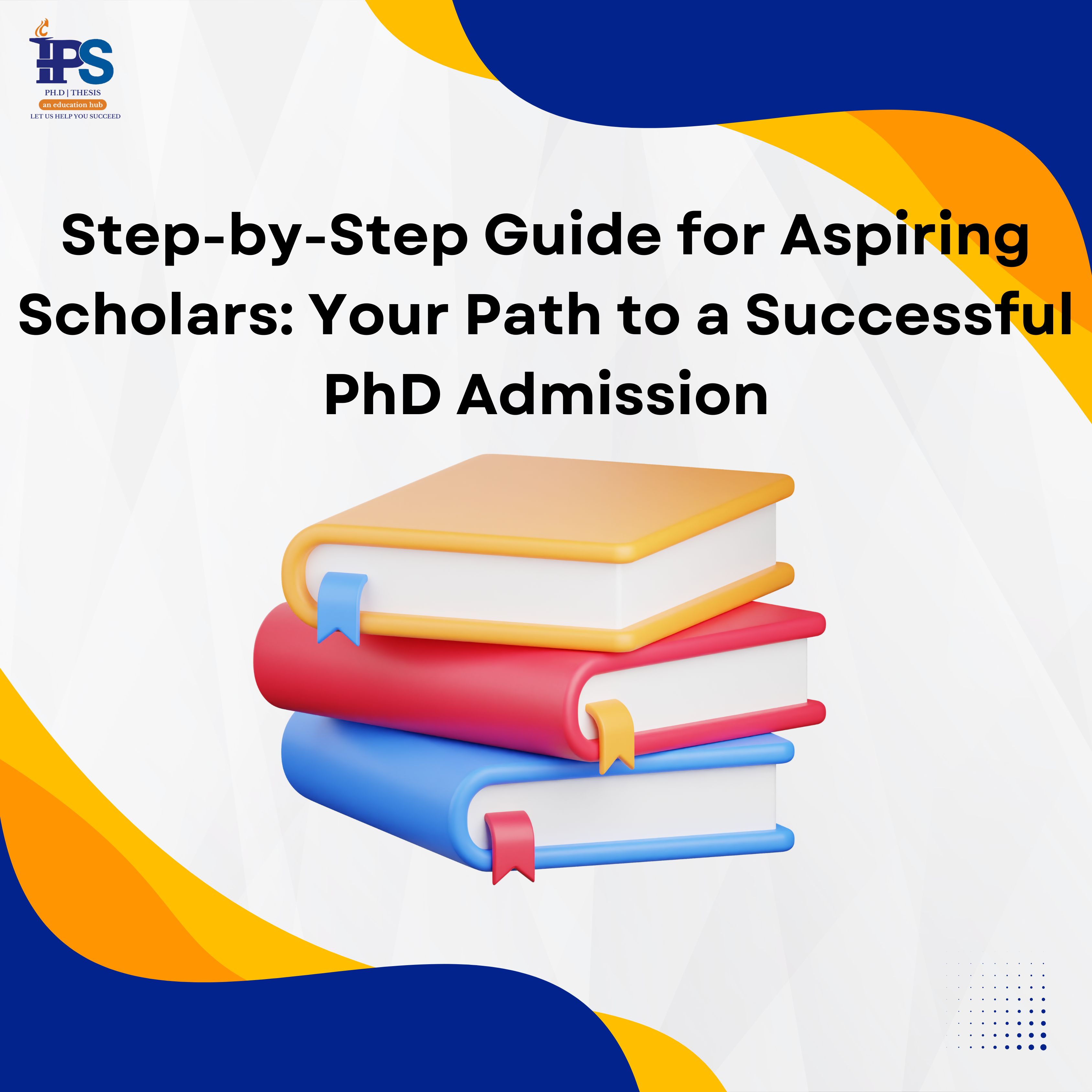
Step-by-Step Guide for Aspiring Scholars: Your Path to a Successful PhD Admission
A PhD is a degree that is the furthest step for researchers to continue their career to the next level. The right strategy, guidance & preparation will help you get into a prominent institution for a PhD in India! Since you are a rookie in the world of academia, you need a guide to be your hand-holding mentor in the complicated PhD admission in India to help you succeed in academic excellence. This Apply PhD admission in India will support your journey through the Step-by-Step Guide for Aspiring Scholars: Your Path to a Successful PhD Admission.
Get to Know PhD Admission India?
The PhD Admission process in India is well structured and is based on eligibility criteria, entrance exams, submission of research proposals and interviews. Universities are looking for candidates who can prove their academic credentials, research potential, and interest in the field of study. IPS Edu Hub– Where Supporting Young Scholars for Admission Is Our Job
Step 1: Choose the Right PhD Program and University.
The first step in your PhD journey is selecting the appropriate university and research domain. Consider the following factors:
- Accreditation and reputation of the university
- Faculty expertise and research facilities
- Availability of research funding or scholarships
- Compatibility with your academic interests and career goals
IPS Edu Hub assists scholars in selecting top universities in India, ensuring alignment with their research aspirations.
Step 2: Confirm Eligibility Requirements?
The PhD eligibility criteria vary from university to university and include the following:
- Minimum percentage or CGPA in a relevant field master's degree
- National-level entrance exams like the UGC-NET, CSIR-NET, GATE university university-specific entrance exams
- Work exp (if required for part-time PhD programs)
We also assist candidates in gauging their eligibility and gathering requirements to ensure a hassle-free application process.
Step 3: Prepare for Entrance Exams?
Most universities require candidates to clear an entrance exam to qualify for PhD admission. The common entrance exams include:
- UGC-NET / CSIR-NET
- GATE (for engineering and technology disciplines)
- JRF (for research fellowships)
- University-specific PhD entrance tests
IPS Edu Hub provides coaching and study materials to help scholars excel in these exams and improve their admission chances.
Step 4: Develop a Strong Research Proposal
A well-crafted research proposal is crucial for PhD admission. It should include:
-
A clear research problem statement
- Objectives and research questions
- Literature review and research gap
- Methodology and expected outcomes
Our expert mentors at IPS Edu Hub guide scholars in drafting compelling research proposals that align with university requirements.
Step 5: Submit Your Application.
Once you have all the required documents, submit your PhD application online or offline as per the university’s process. Ensure that you include:
- Completed application form
- Academic transcripts and certificates
- Research proposal
- Entrance exam scores
- Statement of purpose (SOP) and letters of recommendation
IPS Edu Hub assists in the application submission process, ensuring error-free documentation and compliance with university guidelines.
Step 6: Job Interview Preparation
If you are shortlisted, you will be invited for a PhD interview, during which you will give a short presentation on your research proposal and answer questions from the selection panel. Some standard interview questions might be:
- What is your motivation for applying for a PhD?
- How does your research influence the discipline you are working in?
- What will be your methodology of study?
Our interview preparation sessions assist scholars in building confidence and polishing their answers to impress the selection panel.
Step 7: Secure Funding and Scholarships
Many universities and research institutions offer scholarships or fellowships for PhD students. Some options include:
- UGC-JRF and CSIR fellowships
- University-specific scholarships
- Government and private research grants
IPS Edu Hub guides students in applying for funding opportunities, reducing the financial burden of pursuing a PhD.
Step 8: Complete PhD Registration and Begin Research
Once admitted, you will need to complete university formalities, including:
- Payment of admission fees
- Course registration
- Supervisor allocation
After registration, the research phase begins, where you conduct extensive literature reviews, experiments, and data analysis under the guidance of your research supervisor.
Step 9: Thesis Writing and Submission
A crucial part of your PhD journey is writing a well-structured thesis. The process involves:
- Drafting chapters systematically
- Conducting in-depth data analysis
- Following university formatting guidelines
IPS Edu Hub provides expert thesis writing and editing services to help scholars refine their research work for successful submission.
Step 10: Defend Your Thesis (Viva Voce)
The end point in the process is the PhD viva voce, in which scholars present and justify their thesis in front of a panel of academics. Good preparation, a clear argument and confidence will help you to pass the viva.
Below are some other steps for scholars to make sure to be prepared well, and the defence process goes smoothly, which we conduct at IPS Edu Hub while preparing for mock vivas.
Conclusion:
If you are interested in getting a PhD in India, it is a rewarding experience. This Step-by-Step Guide for Aspiring Scholars: Your Path to a Successful PhD Admission can help you streamline the process. IPS Edu Hub — The best consultant help you to get your PhD done.
So, why wait ? Start your PhD with IPS Edu Hub today!





